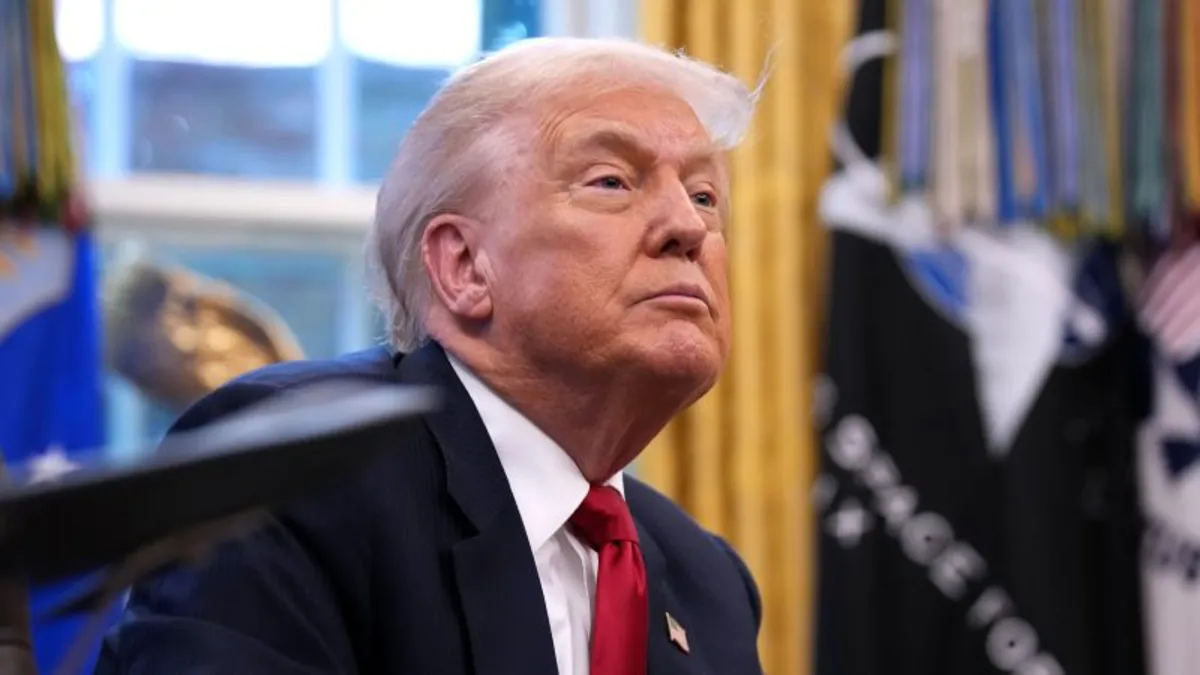
A Georgia prosecutor announced on Wednesday that the historic racketeering case against former President Donald Trump and others, which aimed to overturn the results of the 2020 presidential election, has officially been dropped. This significant move effectively closes a chapter in a legal battle that many believed posed a severe threat to Trump's political future.
The dismissal of the case means that Trump has successfully evaded criminal legal jeopardy regarding his attempts to challenge his election loss to President Joe Biden. Prior to this development, federal cases against Trump, led by special counsel Jack Smith concerning election interference related to the January 6, 2021, U.S. Capitol riot and mishandling of classified documents, were also dropped.
Peter Skandalakis, the prosecutor overseeing the case, outlined the complexities involved in proceeding with the case. In a statement, he highlighted various legal issues, including constitutional questions, the Supremacy Clause, immunity, jurisdiction, venue, speedy-trial concerns, and access to federal records. Skandalakis noted that even if these issues were resolved favorably for the state, bringing the case to trial could take years, potentially delaying proceedings until 2029 or beyond.
He elaborated on the impracticality of severing Trump’s case from that of his co-defendants, stating that doing so would impose undue burdens and costs on the state and Fulton County. Skandalakis concluded that pursuing the case over the next several years would not serve the citizens of Georgia effectively.
The racketeering charges against Trump and 18 others were filed on August 14, 2023, by Fulton County District Attorney Fani Willis. The investigation, which began in early 2021, focused on Trump's alleged interference in the Georgia election following a controversial phone call in which he urged Secretary of State Brad Raffensperger to "find" votes to overturn the election results. Following a protracted legal battle concerning her authority, Willis was eventually removed from the case.
In August 2023, the case gained public attention when Trump surrendered to an Atlanta jail for just over 20 minutes, marking the first time he had to provide a mug shot. This case was considered among the most likely to proceed to trial due to its state-level jurisdiction, which does not allow for federal pardons.
In response to the dismissal, Trump's lead Georgia defense counsel, Steve Sadow, declared that the "political persecution" against Trump had finally ended. He asserted that the case should never have been initiated and credited the decision to a fair and impartial prosecutor.
Trump was charged alongside 18 co-defendants under the Racketeer Influenced and Corrupt Organizations Act (RICO), a law often used to target organized crime. Among those charged was former White House Chief of Staff Mark Meadows and former Trump attorney Rudy Giuliani, who recently settled a significant defamation lawsuit with two Georgia election officials.
The indictment alleged that Trump and his co-defendants "joined a conspiracy to unlawfully change the outcome" of the election, claiming they engaged in a criminal enterprise after losing in Georgia. All defendants have denied any wrongdoing, with some contending they were merely attempting to address what they perceived as serious irregularities in the election.
Four of the 19 defendants, including three attorneys closely involved in Trump's efforts to overturn the election results in Georgia, accepted plea deals, some pleading guilty to felony charges in exchange for more lenient sentencing recommendations. Additionally, thirty "unindicted co-conspirators" were named in this high-profile case.
In early 2024, a motion filed by Michael Roman, a campaign official for Trump, led to Willis being disqualified from the case due to a personal relationship with Nathan Wade, a special prosecutor. The defense argued that this relationship provided Willis with financial benefits, complicating the case further.
Although a judge allowed Willis to continue prosecuting after the special prosecutor stepped down, the legal proceedings faced significant delays. In June 2024, a Georgia appeals court paused the case due to potential misconduct concerns. By December 2024, the appeals court officially disqualified Willis, and the Georgia Supreme Court later declined to hear her appeal, solidifying her removal.
This article has been updated to include the latest developments in this ongoing legal saga.